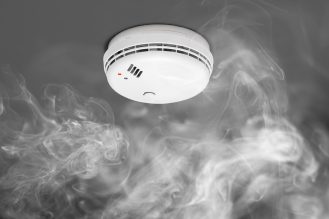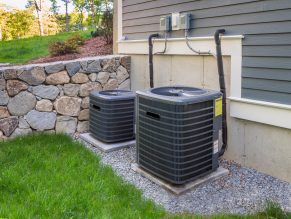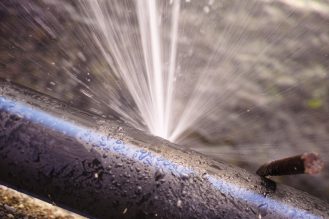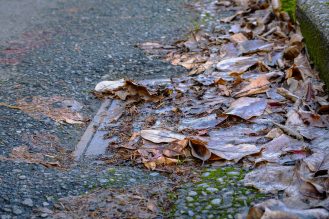Spring forward safely: Top tips to remember as Daylight Saving Time begins
With the approaching Daylight Saving Time on Sunday, March 10 at 2 a.m., it's time to move our clocks forward by one hour and spring ahead.
Environment | March 8, 2024
As Daylight Saving Time approaches on Sunday, March 10 at 2 a.m., it’s time to spring forward and set our clocks ahead one hour. With the days getting longer, we can enjoy more daylight and make the most of our time. Daylight Saving Time gives people more time to enjoy the sunshine, fresh air and outdoor activities like walking, cycling, playing sports and gardening with more daylight!
It may take a few days for your body to adjust to the new time schedule, so it’s important to remember these precautions and tips to stay safe and prepared for the warmer months ahead.
Stay alert on our roads
As spring arrives and the days get longer, more road users will be out enjoying the extra daylight. Whether you’re walking, cycling, or driving, remember to be aware of your surroundings and stay alert to prevent collisions. If you’re driving, be mindful of the posted speed limit and always look out for pedestrians and cyclists, particularly when making turns. To ensure your safety while walking or cycling, use designated crosswalks or crossrides where possible to cross the road and equip your bike with lights and reflectors to increase your visibility.
Check your alarms
It’s always important to ensure your smoke and carbon monoxide alarms are functioning properly. Press the test button to check them and use a vacuum to remove any dust particles. After ten years, smoke and carbon monoxide alarms expire and become less effective. Check the dates on your alarms, and if they are, in fact, expired, purchase new ones. To maintain optimal performance, change the batteries annually or when you hear the low-battery warning beep. If you’re looking for a long-term solution, consider upgrading to newer models with longer battery life, so you don’t have to worry about battery replacements for several years.
Check your electrical systems
As spring rolls around and summer approaches, it’s a great time to ensure that your air conditioner or HVAC system is working efficiently and ready to go. Check all connections, replace filters, and schedule a servicing appointment if necessary. Homeowners often overlook electrical systems when it comes to maintenance, which can lead to issues down the line. To avoid any future problems, test your ground fault circuit interrupters and electrical panel. If you’re ever unsure about how to proceed, it’s always a good idea to contact a professional for assistance.
Look for leaks
Checking your attic is a critical step to ensure that no leaks have developed from melting snow and that no mice, insects, or other creatures have nested over the winter. Additionally, take a moment to check your basement for any cracks in your cement floor and walls and keep an eye out for any signs of leaks. Check that the floor drain in the basement is not covered by carpets or other items. If you smell any odours coming from the floor drain, add a few cups of water to fill the ‘P’ trap that protects your home from sewer gases. While you’re in the basement, it’s also a good idea to inspect your sump pump, hot water tank, washing machine hoses, and basement windows for signs of mold and leaks, as well as any indications of pests. Remember that basements are also at risk for floods. By taking these precautions, you can help prevent any water damage and keep your home safe and secure.
Prepare for spring maintenance
As the weather warms up, it’s time to prepare your lawnmower for the season. Change the engine oil and sharpen the blade to ensure it’s in good working condition. When the time comes to mow again, consider mulching and leaving the grass clippings on top of the grass. Not only does it require less effort, but it can also help promote a healthy lawn and have positive impacts on your community and the environment. Peel no longer collects grass clippings, but they can be mulched or composted to enrich your soil.
Clean gutters and downspouts
Over time, gutters, downspouts and basement window wells can become clogged, especially if there are many trees and vegetation in your area. This can lead to water damage and prevent water from being directed away from your home. To avoid these issues, it’s important to regularly remove any debris and patch up any holes in your gutters using exterior-grade caulking. Adding thin plastic covers to window wells can keep rain and leaves from blocking drainage, but they should allow window egress in emergencies. Additionally, make sure to check your downspouts to ensure that they are properly directing water at least 2m or 6ft away from your basement foundation. By taking these measures, you can prevent water damage and keep your home safe.
Once the danger of frost has passed, if you disconnected any pipes or rain barrels for the winter season, it’s time to go ahead and reconnect them.
Clear debris from storm drains
To prevent flooding during heavy rains, it’s important to clear any garbage, debris, or leaves that may block or clog storm drains in the road or in your backyard or driveway and prevent stormwater from flowing freely. If you notice a blocked storm drain catch basin that isn’t draining, you can report it to 311 to ensure that it’s addressed. By taking these measures, you can help prevent flooding and keep your community safe.
Remove winter tires
In addition to ensuring that your winter tires are stored away, take the time to test your car battery, check your coolant and fluids, and test out your wiper blades. Give your headlights a thorough cleaning and make sure you have an emergency preparedness kit on hand just in case.
Daylight Savings Time is here and with it comes longer days and more sunshine! However, it’s important to remember that we still need to take precautions to stay safe. And don’t forget to set your clocks ahead an hour!
Tags
Media contact
City of Mississauga Media Relations
media@mississauga.ca
905-615-3200, ext. 5232
TTY: 905-896-5151










